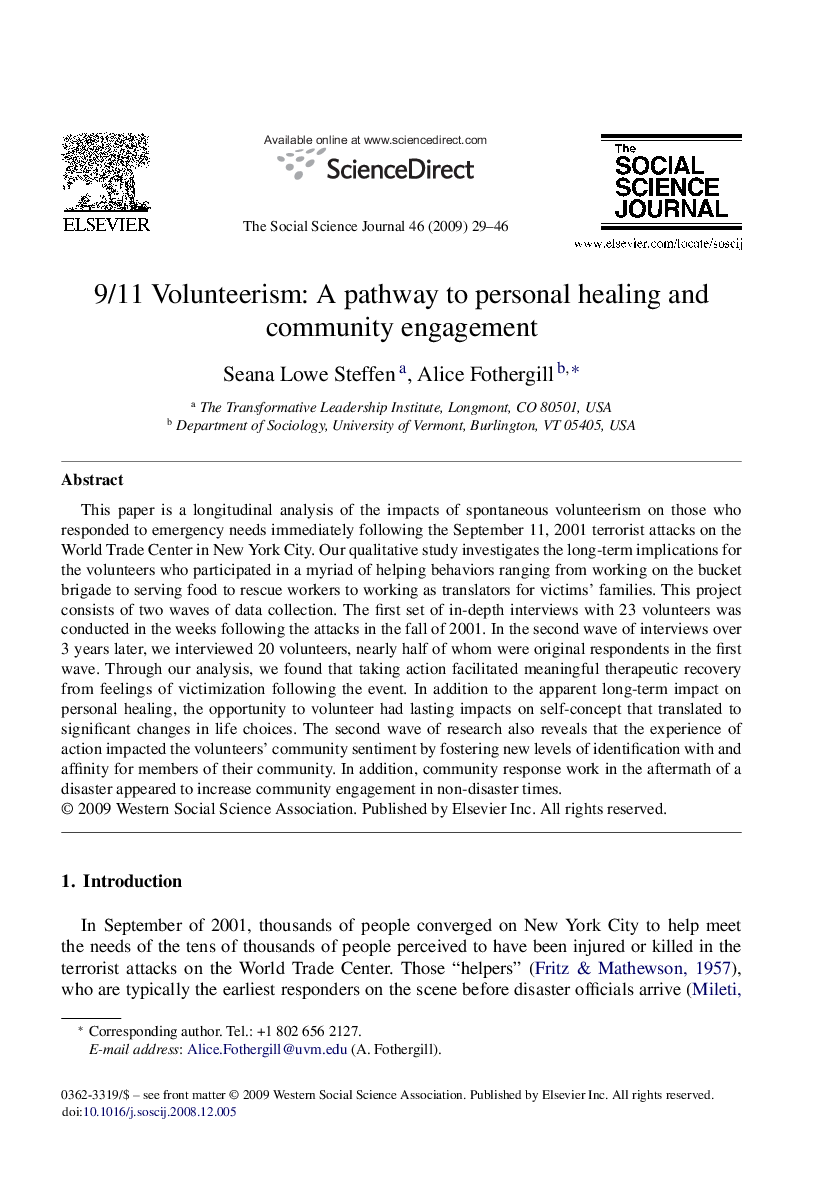| Article ID | Journal | Published Year | Pages | File Type |
|---|---|---|---|---|
| 140658 | The Social Science Journal | 2009 | 18 Pages |
This paper is a longitudinal analysis of the impacts of spontaneous volunteerism on those who responded to emergency needs immediately following the September 11, 2001 terrorist attacks on the World Trade Center in New York City. Our qualitative study investigates the long-term implications for the volunteers who participated in a myriad of helping behaviors ranging from working on the bucket brigade to serving food to rescue workers to working as translators for victims’ families. This project consists of two waves of data collection. The first set of in-depth interviews with 23 volunteers was conducted in the weeks following the attacks in the fall of 2001. In the second wave of interviews over 3 years later, we interviewed 20 volunteers, nearly half of whom were original respondents in the first wave. Through our analysis, we found that taking action facilitated meaningful therapeutic recovery from feelings of victimization following the event. In addition to the apparent long-term impact on personal healing, the opportunity to volunteer had lasting impacts on self-concept that translated to significant changes in life choices. The second wave of research also reveals that the experience of action impacted the volunteers’ community sentiment by fostering new levels of identification with and affinity for members of their community. In addition, community response work in the aftermath of a disaster appeared to increase community engagement in non-disaster times.
